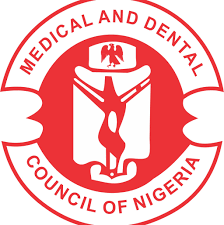In the often-overlooked corners of psychiatric care, Neuroleptic Malignant Syndrome (NMS) continues to challenge even the most seasoned clinicians. That much became clear during a recent grand rounds session at the University of Port Harcourt Teaching Hospital (UPTH), where a team of medical experts, led by Dr. Iberedem David, brought this rare but devastating condition into sharper focus.
Yes, the numbers may appear reassuringly small—with an incidence rate between 0.02% and 0.04%—but when NMS strikes, it does so with swift, life-threatening severity. And perhaps what’s most concerning is not just its rarity, but its ability to evade quick recognition in busy clinical settings, especially in psychiatric care where medication regimens can be complex and evolving.
The team at UPTH did not shy away from the uncomfortable truth: NMS is a medical emergency hiding in plain sight.
Their detailed discussion laid out the key culprits: high-dose antipsychotics, abrupt medication changes, and the dangerous cocktail of multiple dopamine-blocking drugs. They also drew attention to often-overlooked patient-related risk factors—such as being male, young, or having underlying neurological disorders—and even flagged environmental stressors, like extreme heat, that can push a vulnerable patient over the edge.
But what made the session particularly poignant was the presentation of real-life case studies, gathered over two decades. Each story highlighted the complex, often deceptive nature of NMS symptoms, and the diagnostic minefield clinicians must navigate. These weren’t textbook examples—they were human lives nearly lost to a condition that too few know enough about.
And that’s the point.
If this grand rounds session made one thing clear, it’s that awareness isn’t optional—it’s life-saving. Early recognition, rapid intervention, and collaborative care across disciplines—neuropsychiatry, anaesthesia, pharmacy—can mean the difference between recovery and tragedy.
Commendably, Prof. Henry Ugboma, the hospital’s Chief Medical Director, acknowledged the successful handling of NMS cases, praising the teamwork involved. Yet the bigger message wasn't just about celebrating wins. It was about pushing forward, building on those successes through structured training, ongoing education, and stronger interdepartmental synergy.
Prof. Datonye Alasia, Chairman of the Medical Advisory Committee, echoed this, underlining the need for continued education, not only for clinicians but also for medical students, especially in psychiatry—an area that still suffers from stigma and resource constraints in much of Africa.
Crucially, the call wasn’t just inward-facing. The UPTH team advocated for counselling units and referral pathways for students, pediatric patients, and young adults, recognizing that proactive support can often prevent escalation.
So, while NMS remains rare, it serves as a litmus test for how robust, responsive, and integrated our healthcare systems really are. It demands vigilance, coordination, and above all, empathy—not just in treating patients, but in equipping healthcare workers with the tools and training to see beyond the obvious.
If we’re serious about improving psychiatric care outcomes in Nigeria—and across the continent—then discussions like these must leave the lecture halls and echo in policy rooms, hospital boards, and medical curricula.
Because in the fight against rare conditions like NMS, knowledge is more than power—it’s prevention.




